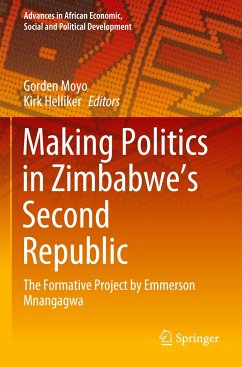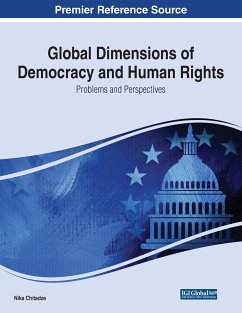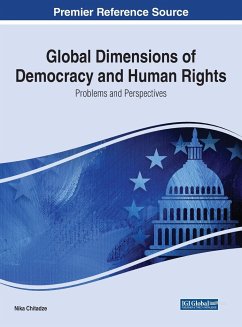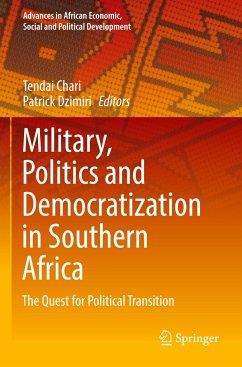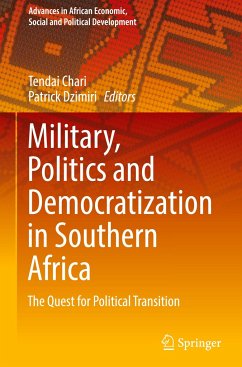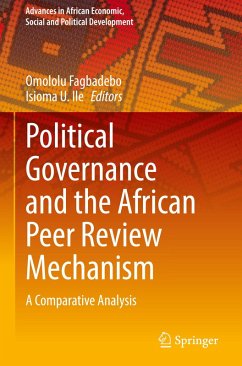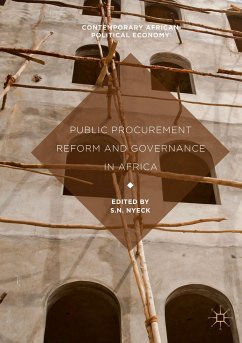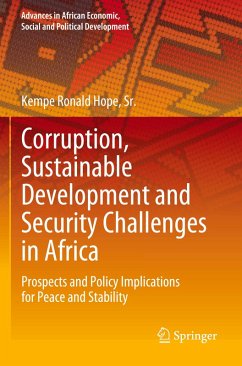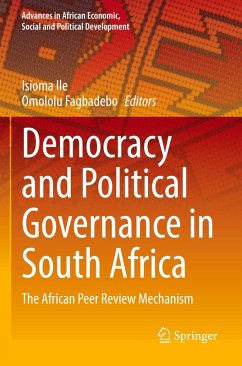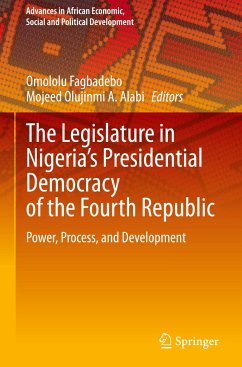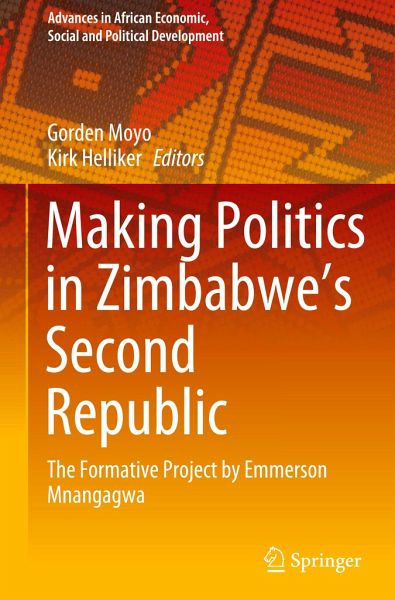
Making Politics in Zimbabwe's Second Republic
The Formative Project by Emmerson Mnangagwa
Herausgegeben: Moyo, Gorden; Helliker, Kirk

PAYBACK Punkte
49 °P sammeln!
The book provides a fresh and innovative interpretation of the new government of Zimbabwe led by Emmerson Mnangagwa, which emerged in late 2017 after the downfall of Robert Mugabe. It demonstrates the contradictory character of the Mnangagwa government, involving both continuities and discontinuities in relation to Mugabe's regime . The temptation amongst Zimbabwean scholars has been to focus on the continuities and to dismiss the significance of any discontinuities, notably reform measures. This book adopts an alternative approach by identifying and focusing specifically on the existence of a...
The book provides a fresh and innovative interpretation of the new government of Zimbabwe led by Emmerson Mnangagwa, which emerged in late 2017 after the downfall of Robert Mugabe. It demonstrates the contradictory character of the Mnangagwa government, involving both continuities and discontinuities in relation to Mugabe's regime . The temptation amongst Zimbabwean scholars has been to focus on the continuities and to dismiss the significance of any discontinuities, notably reform measures. This book adopts an alternative approach by identifying and focusing specifically on the existence of a formative project of the Mnangagwa's Second Republic, further analysing its political significance, as well as risks and limitations.
While doing so, the book covers topics such as reform measures, reconciliation, transitional justice, corruption, the media, agriculture, devolution, and the debt crisis as well as health and education. Discussing the limitations of these different reform measures, the book highlights that any scholarly failure to identify the risks of the project leads to an incomplete understanding of what constitutes the Mnangagwa's Second Republic. The book appeals to students, scholars and researchers of Zimbabwean and African studies, political science and international relations, as well as policymakers interested in a better understanding of political reform processes.
While doing so, the book covers topics such as reform measures, reconciliation, transitional justice, corruption, the media, agriculture, devolution, and the debt crisis as well as health and education. Discussing the limitations of these different reform measures, the book highlights that any scholarly failure to identify the risks of the project leads to an incomplete understanding of what constitutes the Mnangagwa's Second Republic. The book appeals to students, scholars and researchers of Zimbabwean and African studies, political science and international relations, as well as policymakers interested in a better understanding of political reform processes.





